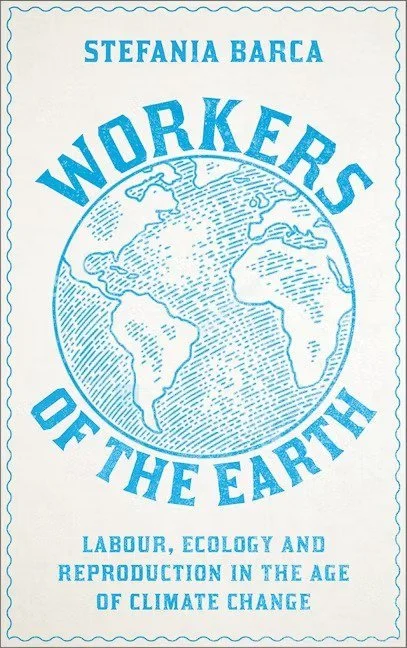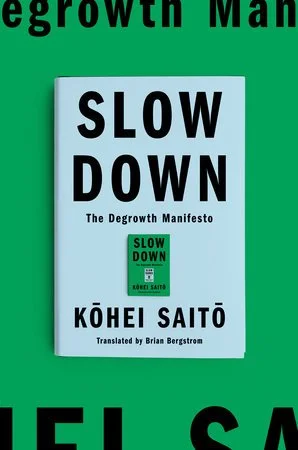“Climate politics need cross-sectoral and international alliances between industrial and metal-industrial workers.”
Read MoreAnd what that means we have to do next.
Read MoreIn a world where capitalism and green growth are often touted as the only options, Slow Down: The Degrowth Manifesto is a glimmer of hope shining through otherwise dark times.
Read MoreHistoric auto contracts could build momentum for climate justice—if my union, the UAW, embraces ambitious clean car standards.
Read MoreThe creators of the film How to Blow Up a Pipeline want climate activists to wrestle with questions about collective action, pessimism, tactics, and what to do next.
Read MoreTo realize a just transition, we need more organizing projects that connect political goals and the economic self-determination of local communities. To do that, climate groups should learn from the Student Nonviolent Coordinating Committee of the 1960s.
Read MoreIn theory and practice, the ongoing fight against pension cuts in France is intimately connected to ecological critiques of economic growth.
Read MoreBuller’s book will play an important role in a lineage of anti-capitalist green thought and theory, providing the evidence against green capitalism for philosophers, political scientists, and ecologists to come.
Read MoreThe new book argues that “degrowth” contains a pragmatic set of strategies and tactics that have a real chance of succeeding throughout many parts of the world.
Read MorePrivate sector-led climate adaptation is a fool’s errand—especially in the Global South. Here’s what we should do instead.
Read MoreProperty destruction has gained prominence among climate activists as a tactic worth considering. Bristol, UK’s “Tyre Extinguishers” are putting this tactic to the test, aiming to make it no longer socially and financially feasible to own a gas guzzling SUV.
Read MorePolitical elites want us to feel the Inflation Reduction Act has saved the day. While the bill will seemingly reduce emissions, it is still far from the radical transformation we need. The only answer is to organize.
Read MoreClimate Change as Class War is a good argument for the climate movement to center production and class dynamics, but author Matt Huber’s strategy analysis is often overshadowed by his poor framing and contempt for some groups. “Going to war” with your colleagues and comrades will not help us solve climate change.
Read MoreNew participatory institutions would make lived realities more difficult for political elites to ignore.
Read MoreGreen New Deal advocates are wise to target federal investment on the climate crisis. But a municipal focus has its own much needed place, centering renewed citizenship, direct democracy, and ecological values. Murray Bookchin can help us create more democratic, ecological societies in the local places where we live, work, and play.
Read MoreThe $20 billion dollar Glasgow pledge for tropical forests and Indigenous people falls dangerously short.
Read MoreSharing the profits from green energy projects with local residents can overcome the grassroots resistance facing renewable infrastructure.
Read MoreCampaigns against animal agriculture are often intellectually questionable and politically inept. The movement against fossil fuels shows us how to do better.
Read MoreWhy winning a post-growth Green New Deal requires transition to real democracy
Read MoreBig social change depends on big social movements, but our societies are too fragmented. That’s why—on the cliff-edge of climate collapse—it’s worth trying to rekindle trust and reclaim our collective ability to make sense of the world.
Read More















